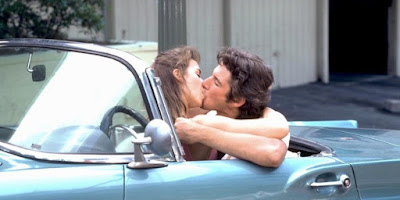Known as the "King of the Underworld", Bruce Lee has been slowly building a community for Bucharest's homeless men, women and children in the tunnels underneath the city. Among his closest followers is Nicu, a young runaway in search of a place where he can feel a sense of family.
In Joost Vandebrug's new documentary, never has the term 'underworld' been more apt, with this community of street kids, drug addicts and stray dogs occupying the many tunnels under Bucharest in a secret shanty town hidden from street level. Bruce Lee, a seemingly kind and generous man, has become a father figure to Nicu (who he dubs 'The Outlaw'), a young boy who after running away from home has become one of the many youths living on the streets of Bucharest, often selling their bodies to strangers in order to buy food to survive. Filmed over the course of six years and narrated by the Nicu of present day, this documentary aims to lift the manhole cover off this subterranean society of people.
Bruce Lee (sadly not his real name, but a street pseudonym) is quite an enigmatic figure; one who has children and stray dogs naturally drawn to him as he walks down the street. This is partly down to his appearance, often caked in a silver Aurolac substance that almost kills him, and with large, bulky chains shackled to his body at all times for jewellery. He has been painted as a criminal mastermind by the media, but it's hard to reach that conclusion from the evidence here. Never one to be too forthcoming with the camera present and not in search of any form of celebrity, he instead goes on with his day to day business, usually cooking for the many random faces that are in his home.
It's unclear if Bruce is a generous man or master manipulator, coming up with the idea to collect the earnings of the street kids to buy a local abandoned hotel that could house everyone; a plan that never comes to fruition and the whereabouts of the money unknown. A modern day Fagin to Nicu's Artful Dodger? Perhaps. But the twist is this is Nicu's story. As a document of the plight of the homeless Romanians, Vandebrug's film focuses on Nicu to serve as a snapshot of this community, rather than the original group of street kids we are presented with. The role of the authorities and those wanting to help is covered, but such is the draw of the lifestyle that after falling ill and being taken into care by Raluca, the only clearly positive female figure in his life, Nicu is still keen to return to his community where he has a sense of belonging, no matter how dangerous it is.
This documentary does raise questions about when and if a documentarian should interfere with the path their subjects are on. The children are seen to be doing drugs of varying degrees, some using heroin and most permanently carrying black plastic bags that they huff noxious substances from. They do not appear to be in immediate physical danger, although some of the stories these children tell prove that they have been subjected to things no child should. It's also apparent that director Joost Vandebrug (affectionately referred to as Giraffe by Nicu) isn't surrounded by a huge camera crew, occasionally catching the reflection of himself and his camera when in the tunnels. It's this one man documentary crew approach that has allowed him access and the relative cooperation of the community over a six year period. As for the issue of whether or not to remain a passive observer when faced with the health and well being of these innocents, it is something the documentary covers, to its credit.
Nicu's commentary reminds of someone watching home video footage of themselves as a child, reminiscing about his life, laughing at the happy times and offering sobering words about his life, like "I'm an ordinary child, except God didn't help me because he was busy with other kids". It's a perspective that is tragic and unsettling to hear from one so young, but one that by telling his story this documentary hopes to avoid happening in the future.
Verdict
5/5































